Why Is My Steering Wheel Hard to Turn? Possible Reasons Explained
-
Visnja Radosavljevic
- Last updated:

Your steering wheel can become stiff and hard to turn due to a lack of maintenance or an issue with one of your vehicle components. If you sense that your steering wheel is becoming hard to turn, you need to determine the reason behind the issue, as an increased difficulty in turning your steering wheel could be caused by several of your car’s components. If the issue is neglected, it could cause more long-term damage, so that’s why you should act quickly.
How does the power steering system function?
Your power steering system relies on several vehicle parts, and it’s there to help you maneuver your car more efficiently and have more control over the vehicle.
The power steering pump provides fluid to your power steering system and the pinion unit and rack. When you move your steering wheel, the valve in the steering system allows the fluid to flow to the pinion and lets you turn the wheel easily. Once your wheel moves, the pinion moves and forces the rack in the direction you’re navigating.

Common issues that can make your steering wheel hard to turn
There can be multiple reasons why your steering wheel is hard to turn, and you should know how to recognize them. To help you get acquainted with some of the most common issues that cause issues with turning your steering wheel, check them out below.
1. Low-power steering fluid
Your power steering system needs to have enough fluid inside to lubricate, pressurize, and function properly. If your power steering fluid is loose, damaged, or just not fresh enough, your steering wheel can become hard to turn.
- Frequently inspect your power steering fluid to ensure that it’s not dirty or contaminated. If there’s grime, dirt, or anything else that could endanger your power steering fluid and, therefore, your steering function, you’ll need to get a flush or replace the fluid.
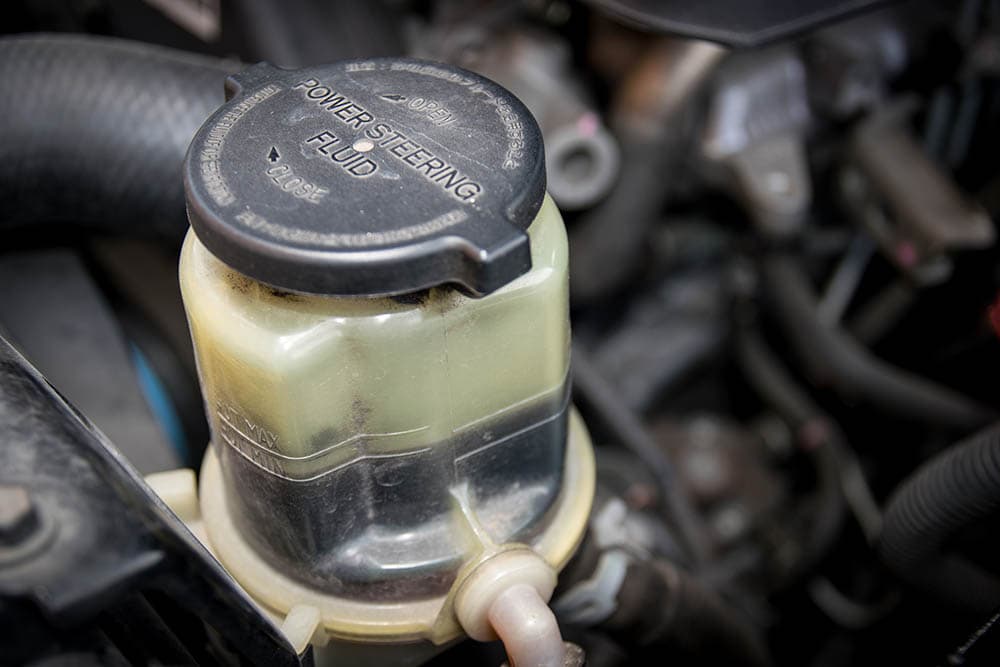
2. The power steering fluid is too thick
Another common issue that makes your wheel hard to turn is power steering fluid that’s too thick. For the wheel to turn properly, the liquid should be watery so that it can lubricate the system properly. The liquid thickening can make the wheel stiff and rigid to turn, so if you notice any steering wheel issues, keep that in mind.
- The only way to fix an issue with a hard-to-turn steering wheel caused by thick power steering fluid is to flush and re-fill it with new fluid.
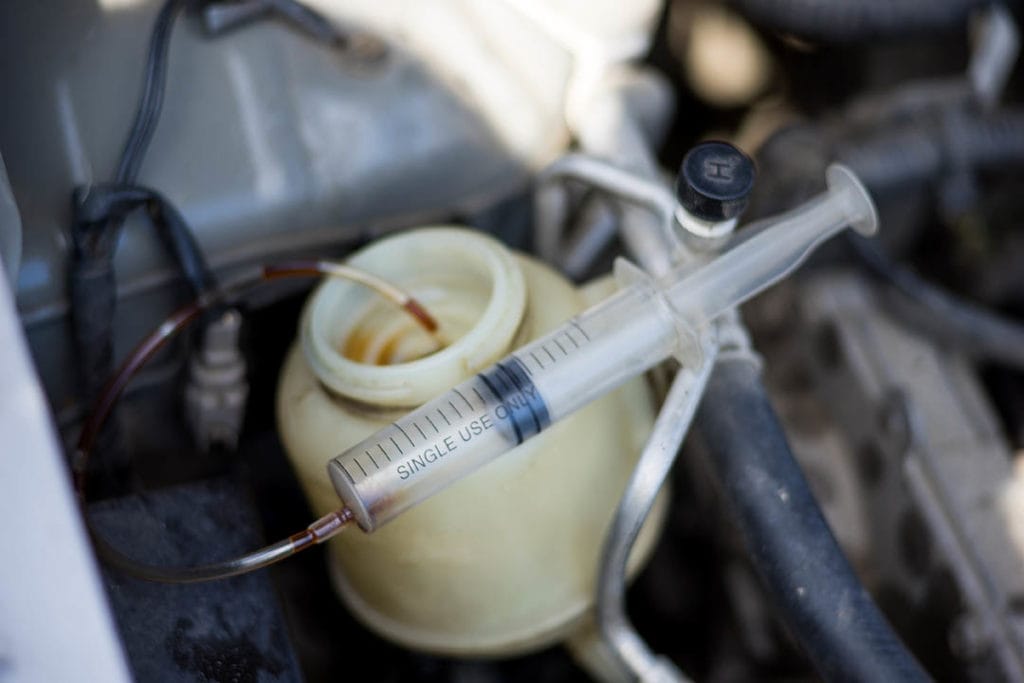
3. Leaking power steering fluid
If your power steering fluid is leaking, that could also make your steering wheel hard to turn. For your power steering system to function, you need to have an adequate amount of fluid to lubricate the system and allow proper performance.
When there’s not enough fluid, or you notice leaking, the pressure in the system becomes reduced, and the power steering pump needs to work harder to recover from the pressure loss. Because of that, your steering wheel won’t get enough fluid supply to function, and it will become hard to turn.
- If there’s a leak, you’ll need to find the source of the issue, which is commonly a loose or cracked hose. Once you find the source of the leak, repair it and re-fill the power steering system fluid to allow your wheel to turn without issues.
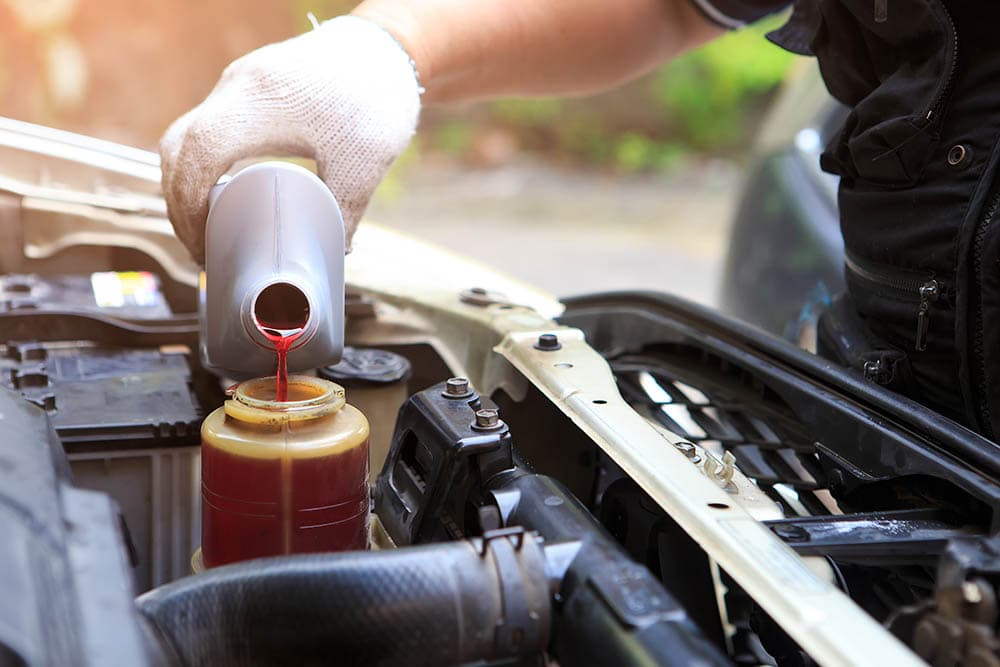
4. A broken or damaged serpentine belt
Another common cause of a stiff steering wheel can be a broken, cracked, or damaged serpentine belt. When the belt begins to wear down, your steering wheel will show signs of stiffness and will become hard to turn. As the vehicle constantly uses the belt, wear-outs are pretty common.
- If the serpentine belt is the reason behind your steering wheel stiffness issues, you’ll need to replace or repair it promptly. If you don’t act quickly, the belt could completely break, and you won’t be able to drive your vehicle.
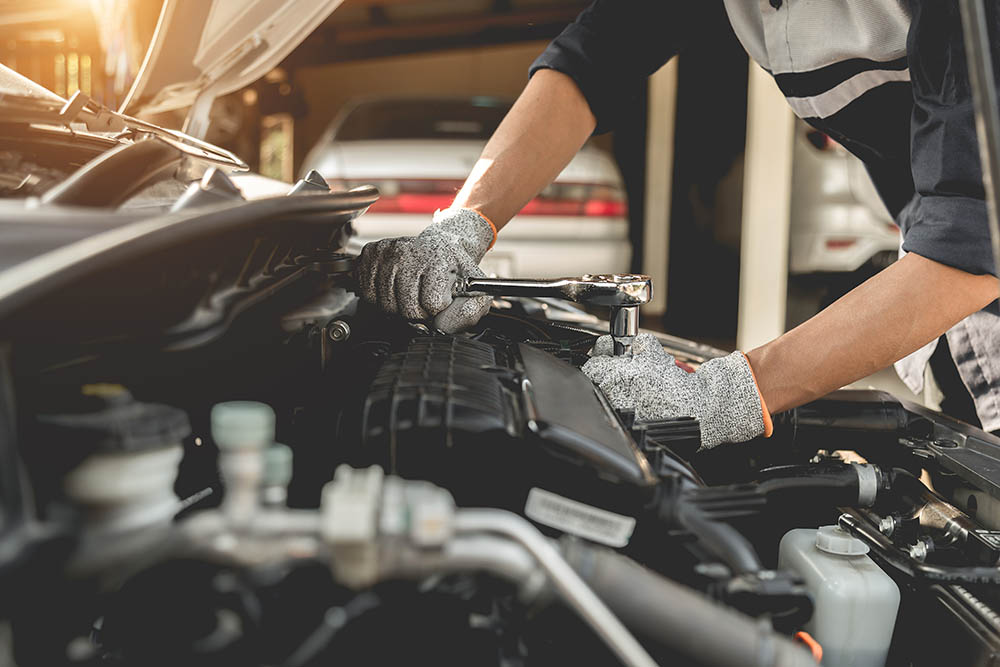
5. Malfunctioning steering rack
The steering rack is an essential component of your power steering system as its role is to attach the steering wheel to the parts that turn the wheel to where you’re navigating. Your steering rack uses various U-joints and shafts to connect with the steering wheel, and the parts can wear out quickly.
If your steering wheel is stiff just after you start the car, although the wheel turns much easier as you keep driving, the issue is probably in the steering rack. The rack warms up when your engine is working and it allows the lubricant to settle, so the steering wheel is hard to turn only at the beginning of the drive.
- The only way to fix this issue is to replace the steering rack and other malfunctioning components. To do this, take your car to a mechanic that will determine if that’s what’s causing the issue, and they will do a replacement for you.
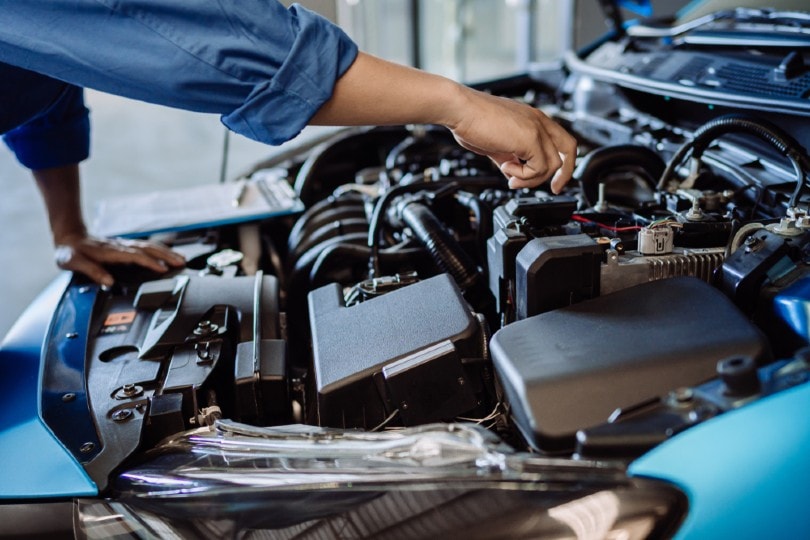
6. Issues with the steering pump
The power steering pump is a crucial component of the power steering system as it transfers the fluid to the pinion unit and rack. It also maintains the pressure in the system so that you can move your steering wheel without force. When and if the steering pump is malfunctioning, the power of your system gets lower, and your steering wheel is harder to turn.
If you ignore an issue with your power steering pump, you could end up in danger as the car might be unsafe for driving.
- If your steering pump is malfunctioning, check the connector to check if the pump is damaged or if it just wiggles loose. Any signs of damage to the pump will mean that you need to replace it immediately to avoid possible issues.
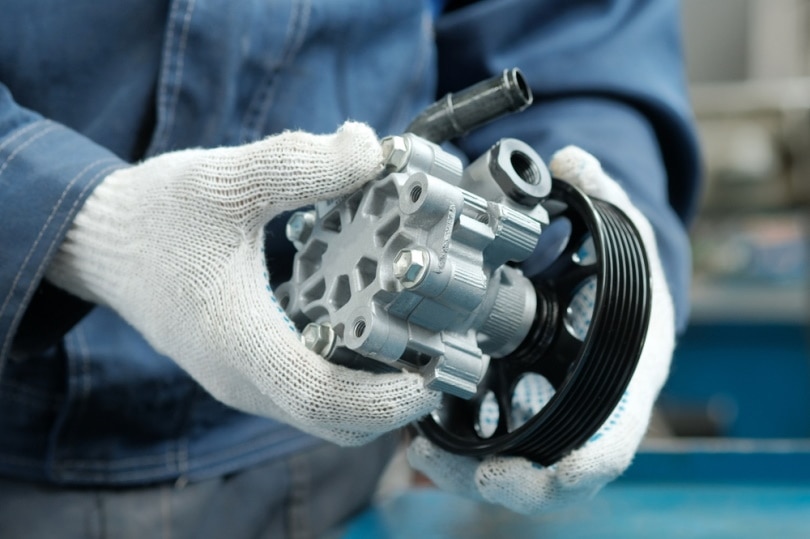
7. Bad tire pressure
Many people don’t know this, but when you have bad tire pressure, that can affect the performance of your steering wheel and make it hard to turn. Tires with uneven pressure and deflated tires can cause this issue, so always check the pressure in your car tires.
When you’re unsure of the correct tire pressure for your vehicle, it’s best to check the manufacturer’s guidelines. The most common signs of this issue include stiffness in your steering wheel during low-speed driving or when your vehicle is parked.
- Make a routine to check your tire pressure at least once or twice a month to ensure your tires are not deflated or low on pressure. While checking the pressure, ensure that it matches the guidelines of your vehicle manufacturer and the tire size for your car.

8. Issues with the front end alignment or with the front suspension components
When there’s uneven wear on your front tires or you have an issue with your front-end suspension components, you’ll likely experience an issue with turning your steering wheel. Any issue such as a bad tie rod, lousy ball joints, or an issue with the wheel bearing could make your steering wheel hard to turn.
Also, if your tires are not balanced, the front tires can pull your car to one side, causing stiff steering. You’ll likely notice that this is creating your issue when you try to corner or turn your vehicle.
- Inspect your front-end suspension to ensure everything is functioning as it’s supposed to. If you notice anything alarming, take your vehicle to a mechanic to determine the actual problem and resolve it for you.
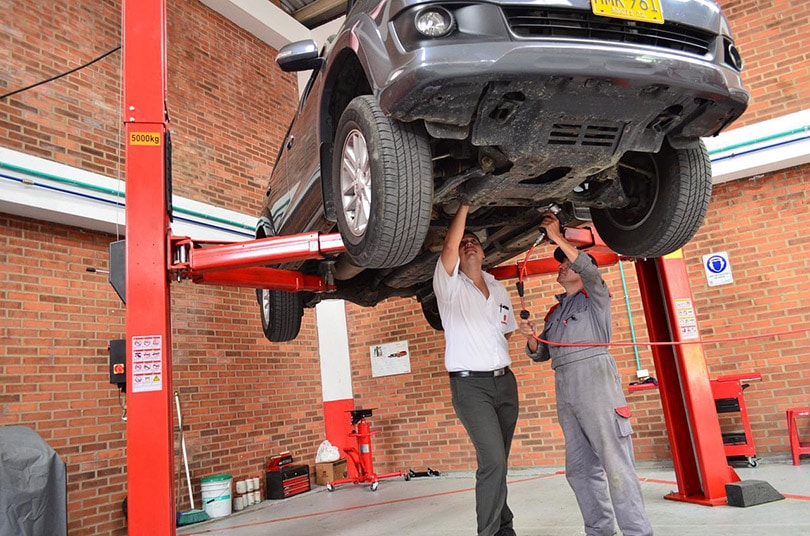
Final Thoughts
There are various reasons why your steering wheel is hard to turn, and regardless of the cause, you should act as soon as you notice this problem. Either inspect all the possible components yourself or take your car to a professional who will find the cause and fix it to make your vehicle safer.
- Related Read: My Steering Wheel Shakes When Braking – What’s Going On?
- What makes a car’s steering wheel hard and still?
- 5 causes of a steering wheel that’s hard to turn
- 6 reasons for steering wheel hard to turn & solutions
- Top six causes of hard steering wheel and solutions
- Why is my steering wheel so hard to turn?
- Why is my steering wheel hard to turn?
- Why is my Steering Wheel Hard to Turn: How to fix it?
Featured Image Credit: EZ-Stock Studio, Shutterstock
Contents
